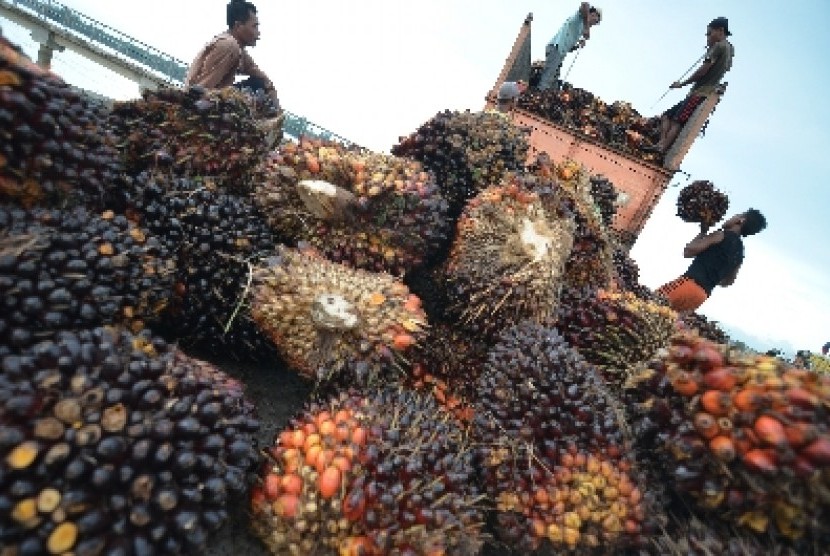REPUBLIKA.CO.ID, JAKARTA -- Indonesia has strongly condemned France's plan to impose progressive tax on all palm oil-based products.
The country's first deputy for maritime sovereignty, Arif Havas Oegroseno, said in a discussion with journalists here on Monday that the plan to impose such a tax has been included in a bill on bio-diversity passed by the French Senate on January 21.
"The palm oil tax included in the bill will become effective from 2017, and will amount to 300 Euros per ton for 2017, 500 euros per ton for 2018, 700 euros per ton for 2019 and 900 euros per ton for 2020 while the tax being charged now is 103 euros per ton," he said.
Regarding palm oil used in food products, the bill sets an additional import tax of 3.8 percent while for kernels used for food products, it is 4.6 percent.
After 2020, Havas said the tax would be increased on an annual basis, as per the decision of the French ministry of finance.
"Strangely, the tax does not apply to rapeseed, sun flower, soy bean or vegetable oils produced in France. We consider this as a discriminatory act against Indonesia, which is the biggest producer of palm oil," he said.
Havas said the French Senate's tax policy was ostensibly to help fight deforestation and ecosystem damage.
The tax is also aimed at eradicating dangerous pesticides (parakuat), claimed to have been used in oil palm plantations across the world.
The tax is also in response to health scares such as heart attack and Alzheimer, for which palm oil is considered the culprit.
"We have submitted our objections to the French government through the French ambassador to Indonesia in a meeting this afternoon. We have also discussed the issue with Malaysia, which is also the initiator of the Council of Palm Oil Producing Countries," he said.
Havas said among the reasons for rejecting the French plan was the fact that France, Denmark, Britain, the Netherlands and Germany have signed an Amsterdam agreement stating that the five countries support sustainable palm oil production practices.
"So on the one hand, they support us, but on the other hand, the French parliament punishes us with a high tax," he said.
The Indonesian government, Havas said, considered the plan discriminatory because French vegetable oils are not taxed equally.
"This is a violation of the WTO obligations as well as of GATT 1994 agreement and the European Union market rules," he said.
Havas said Indonesia has already adopted Indonesia Sustainable Palm Oil (ISPO) standard to encourage sustainable and environmental-friendly palm oil production.
"This tax is illogical because the Indonesian government has already carried out efforts to prevent deforestation. The government has also taken firm action against companies involved in recent forest fires. The CIFOR, a forest monitoring institute, has even stated that only 10 percent of the recent forest fires are related to oil palm plantations," he said.
Regarding the use of parakuat pesticide, Havas considered the reason as invalid because the use of the pesticide has long been stopped.
About the reasons being cited for health scare, he said the claims are not true because these are not based on the results of a research research by French institute Credoc.
"What is more ironical is that proceeds from the tax would be transferred to social security funds to subsidize farmers and French community members. It is very ironical because poor oil palm farmers in Indonesia will eventually end up footing the social security bill for the French people," he said.
In view of that, Havas said the ministries of trade, industry and agriculture will undertake diplomatic efforts against the French government.
Along with Malaysia in CPOPC, Indonesia will also undertake diplomatic efforts to press for the withdrawal of the taxation plan.
"On March 15, the Senate and the Congress will take a decision on the bill. Before that, we still have time to conduct some diplomacy to convey our stance," he said.


